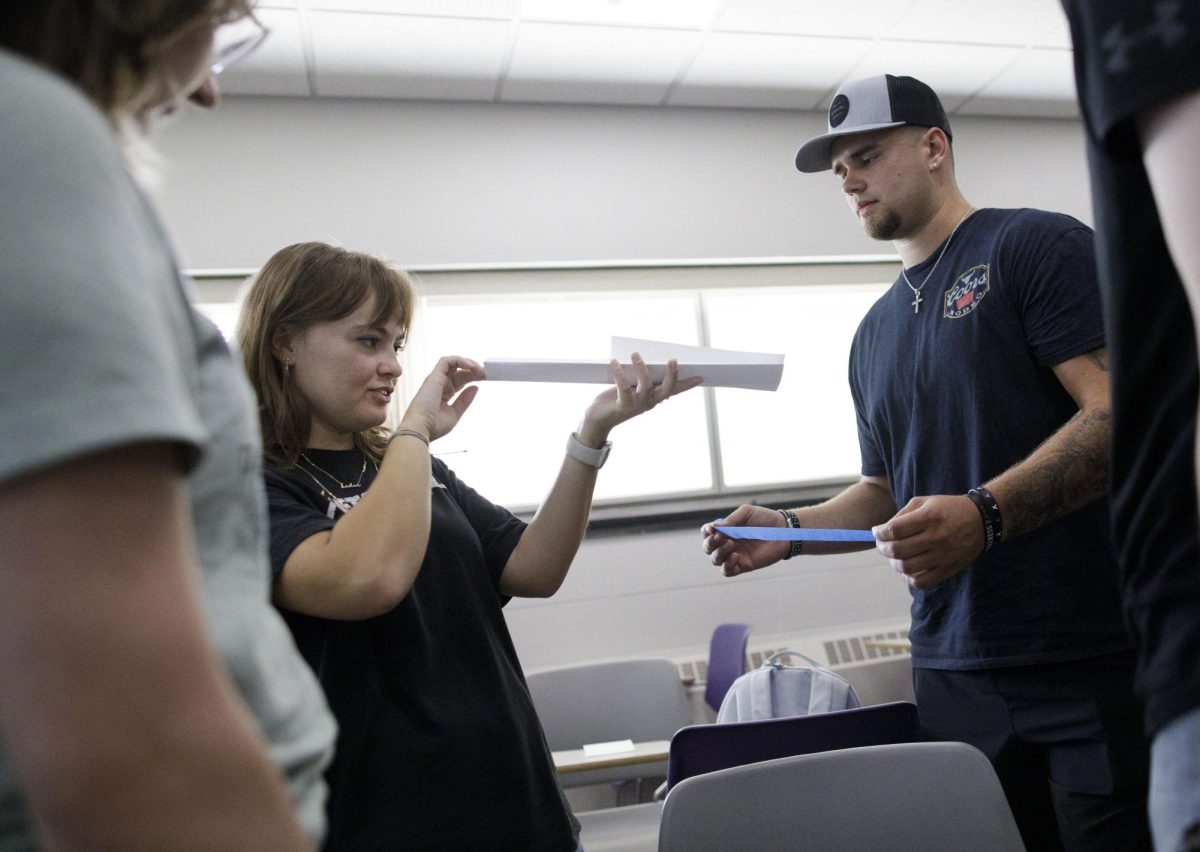Healthcare is a field that is constantly evolving and adapting to meet society’s ever-changing needs. Now more than ever, the healthcare industry needs ready and capable individuals who know how to be effective leaders.
The University of Wisconsin-Whitewater’s College of Letters and Sciences is taking the steps necessary to prepare students for careers in healthcare and leadership. The university launched a new major for the fall 2025 semester called Health and Leadership Studies.
Loren Wilbers is an associate professor and chair of the Department of Sociology, Criminology and Anthropology. Wilbers is also the coordinator of the Health and Leadership Studies major, which is being housed in the department she chairs.
Wilbers explained that talks of this program stemmed several years ago from a former dean. Wilbers also added that the program seeks to provide a transfer-friendly experience for students who have already earned an associate degree in a healthcare-related field.
“Maybe they’ve been working in the field for a while, and then they want an opportunity to move up or change jobs to do more of a management role in healthcare,” Wilbers said. “We’ll take those [transfer] credits, and then they can finish the coursework here so that they can have a bachelor’s and hopefully pursue other kinds of health careers that they want to do.”

The addition of the program is supplemented by an articulation agreement signed between UW-Whitewater and the Wisconsin Technical College System. The agreement states that students who graduate from one of the 16 schools in the WTCS with an Associate in Applied Science degree receive guaranteed admission to the program.
In a September 2025 press release, Robin Fox, interim provost and vice chancellor for academic affairs, expressed that UW-Whitewater is very proud to be a transfer-friendly school.
“We believe this articulation agreement is a strong example of that,” Fox said. “This degree will create opportunities for students to earn a bachelor’s degree and, ultimately, succeed in jobs that are critical to the healthcare of people in our state and around the region.”
Curriculum-wise, the Health and Leadership Studies program is broken into three core areas. According to Wilbers, students will be taking courses that are related to health studies. This section of courses is taught by several campus departments, including sociology, biology, women’s studies and philosophy.
“The nice thing about this program is that students who are coming in have some choices,” Wilbers said. “So, they can look at the lists and say, ‘that one [course] looks interesting.’”
The next category of courses is leadership and organizational literacy. These courses teach students how to be effective leaders. Wilbers highlights the management, social work and political science departments as teaching some of the courses.
The final group of coursework is communication skills, and Wilbers stated that the communication department faculty will be teaching most of these courses. All students are also required to take an introductory course in the major and a senior seminar in which they will create a portfolio.
Wilbers explained that the program was built around what course offerings already existed in other departments. As such, there will be no faculty members who will be exclusively teaching the program, but rather a mix of faculty from several departments.
In the Sept. 25 press release, Dean Jason Janke stated that the interdisciplinary nature of the program will help students who seek to make a difference.
“Through a unique blend of coursework, students will enhance their understanding of healthcare and build essential professional skills, such as communication, critical thinking and teamwork, which are crucial for effective leadership,” Janke said.

Wilbers also commented on the format in which courses are offered and expressed that the modalities will be beneficial to students.
“Students could do the whole program online because we want to be friendly to working professionals,” Wilbers said. “But they are also welcome to take classes on campus. So, they could do a hybrid if they wanted to.”
As students in the program will already have an associate degree in healthcare, this program will allow them to move up in the industry by obtaining a bachelor’s degree. Wilbers anticipates that a lot of the students in the program will be simultaneously working and completing their degree.
After completing the program, students will be prepared to obtain a leadership position in healthcare. These jobs, according to Wilbers, are some of the fastest-growing in Wisconsin and the United States.
“I would imagine that these jobs are going to be in demand, and then we’re going to be able to help fill that demand,” Wilbers said. “I think that’s probably not going to slow down anytime soon. So we’ll be able to help people get the credentials that they need to take on those kinds of positions and help people.”
Wilbers expects the program to admit its first cohort of students in the fall 2026 semester, but students may begin in spring 2026. This all depends on when students submit their applications.
With healthcare being such a large industry in the United States, the Health and Leadership Studies program seeks to create new opportunities for students. Wilbers remains optimistic about the future of the program and the healthcare industry.
“We’re talking about healthcare in a number of different kinds of areas, allowing people to hopefully do great things, find better ways to serve others and provide more quality healthcare, which we all need,” Wilbers said.


